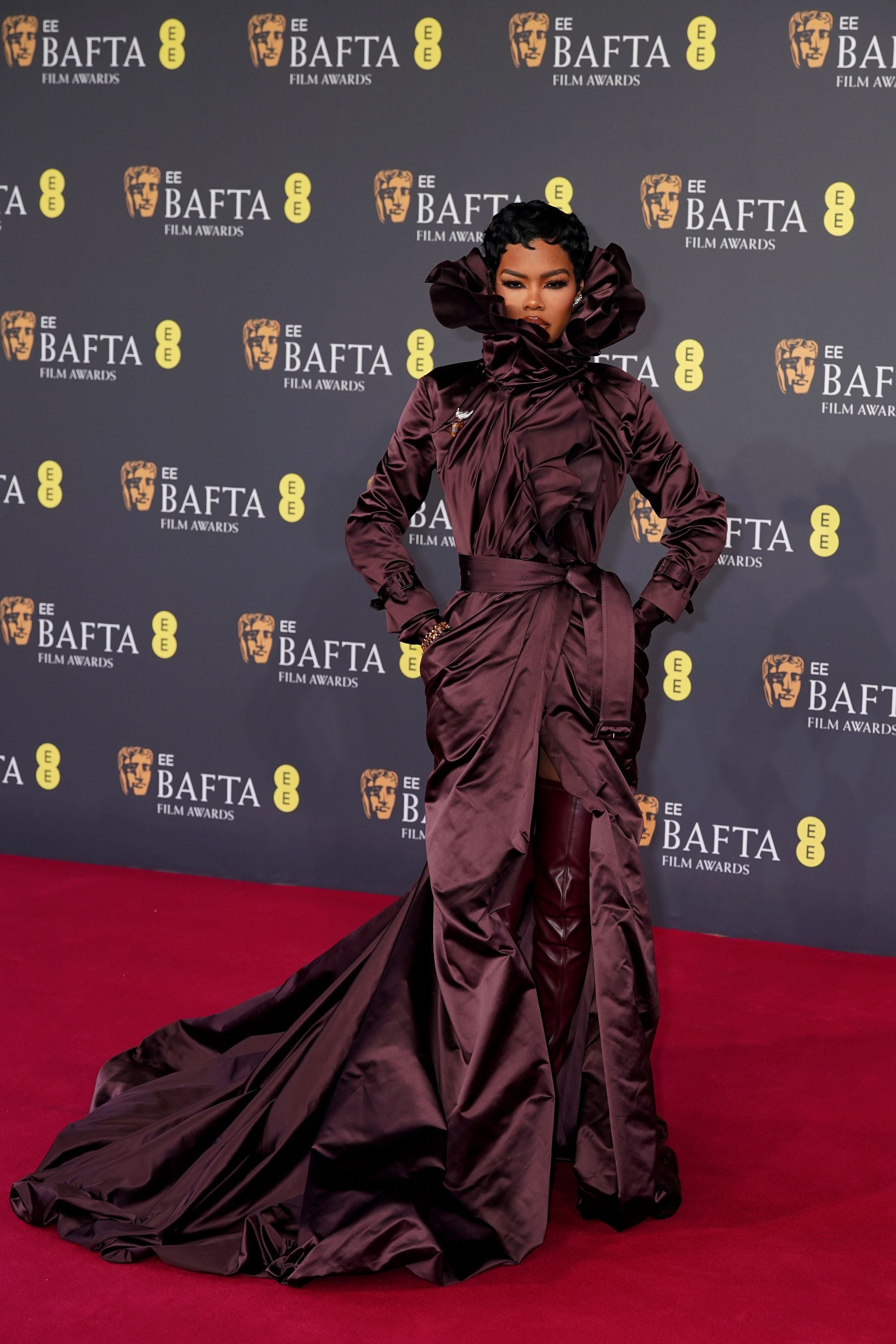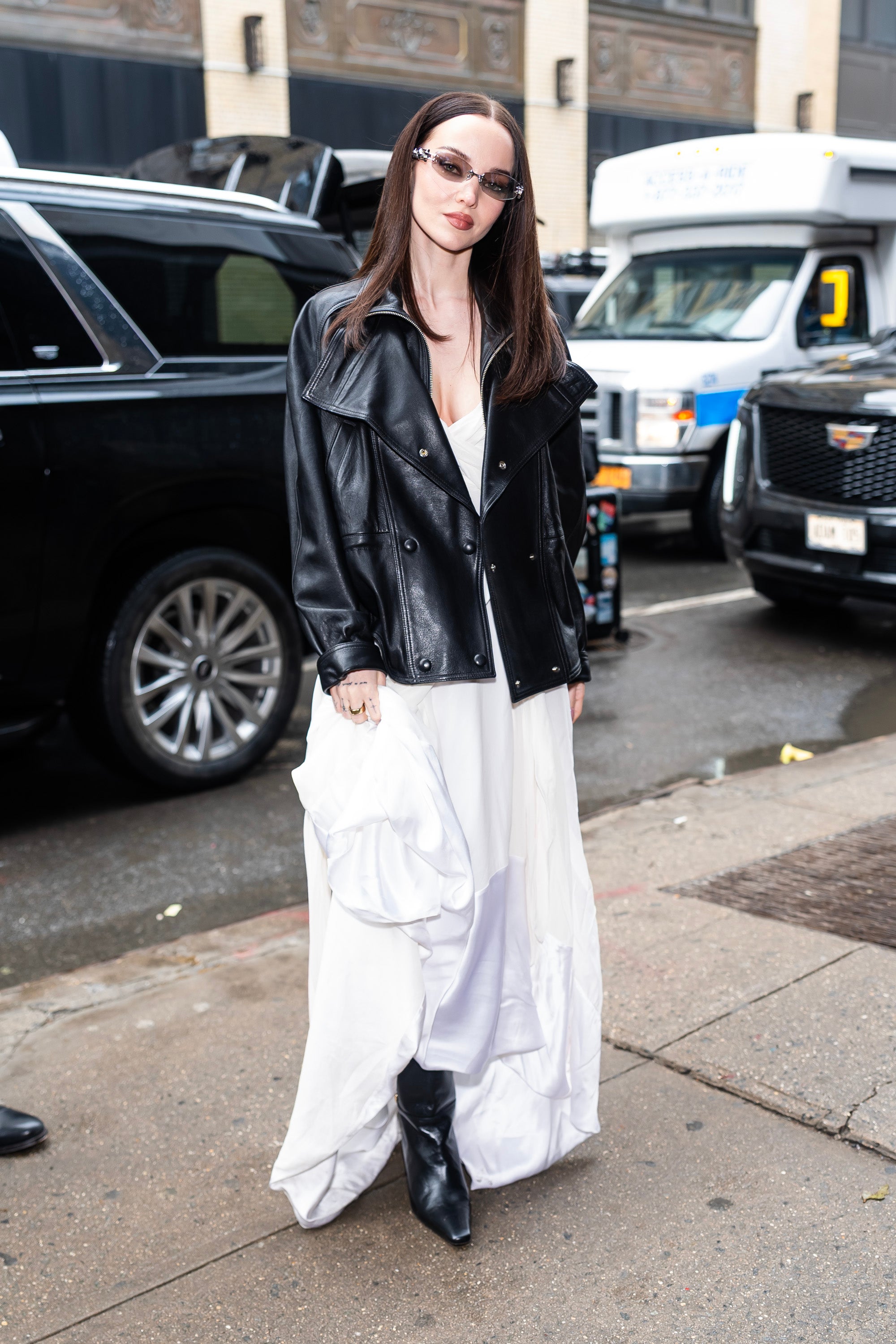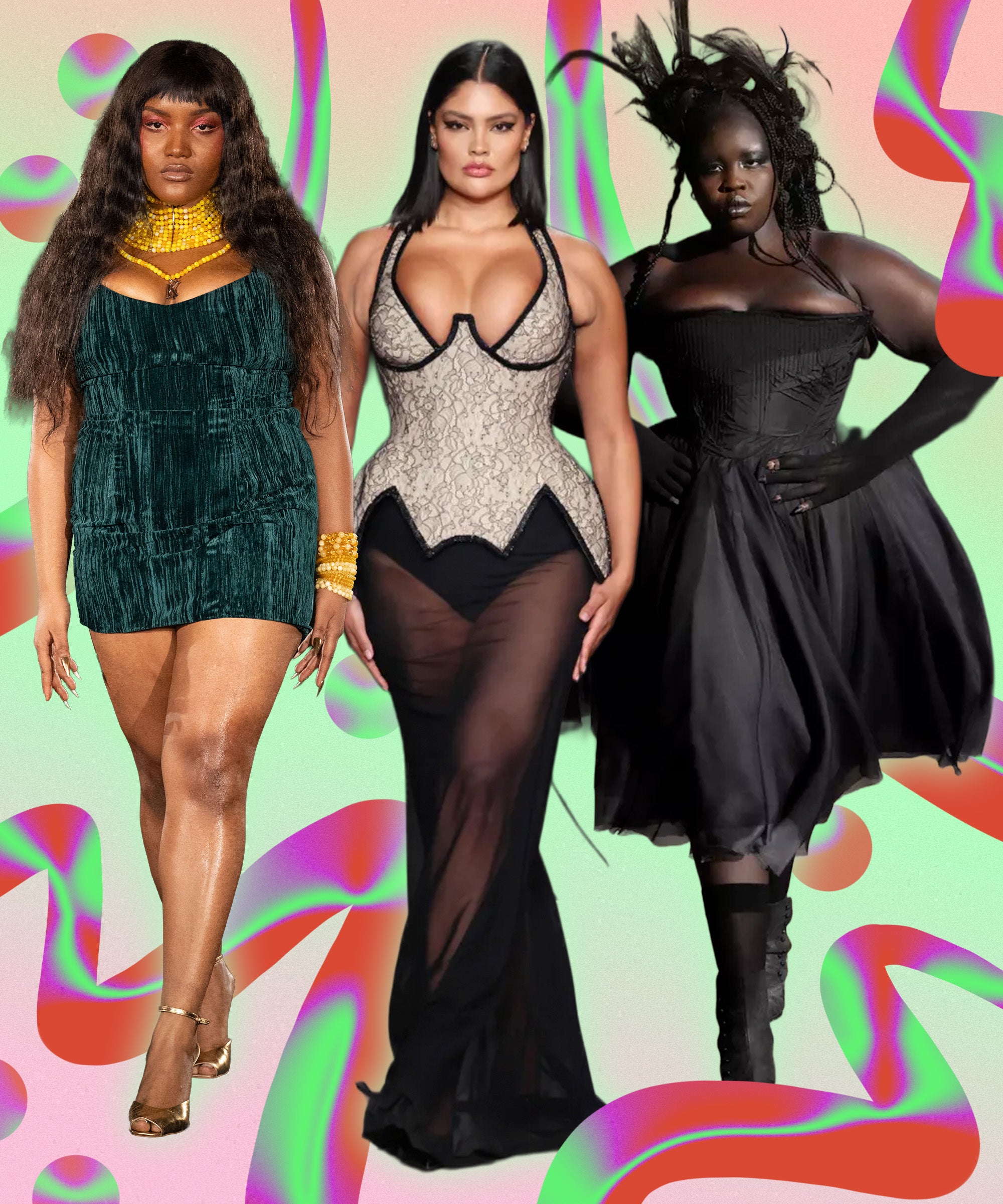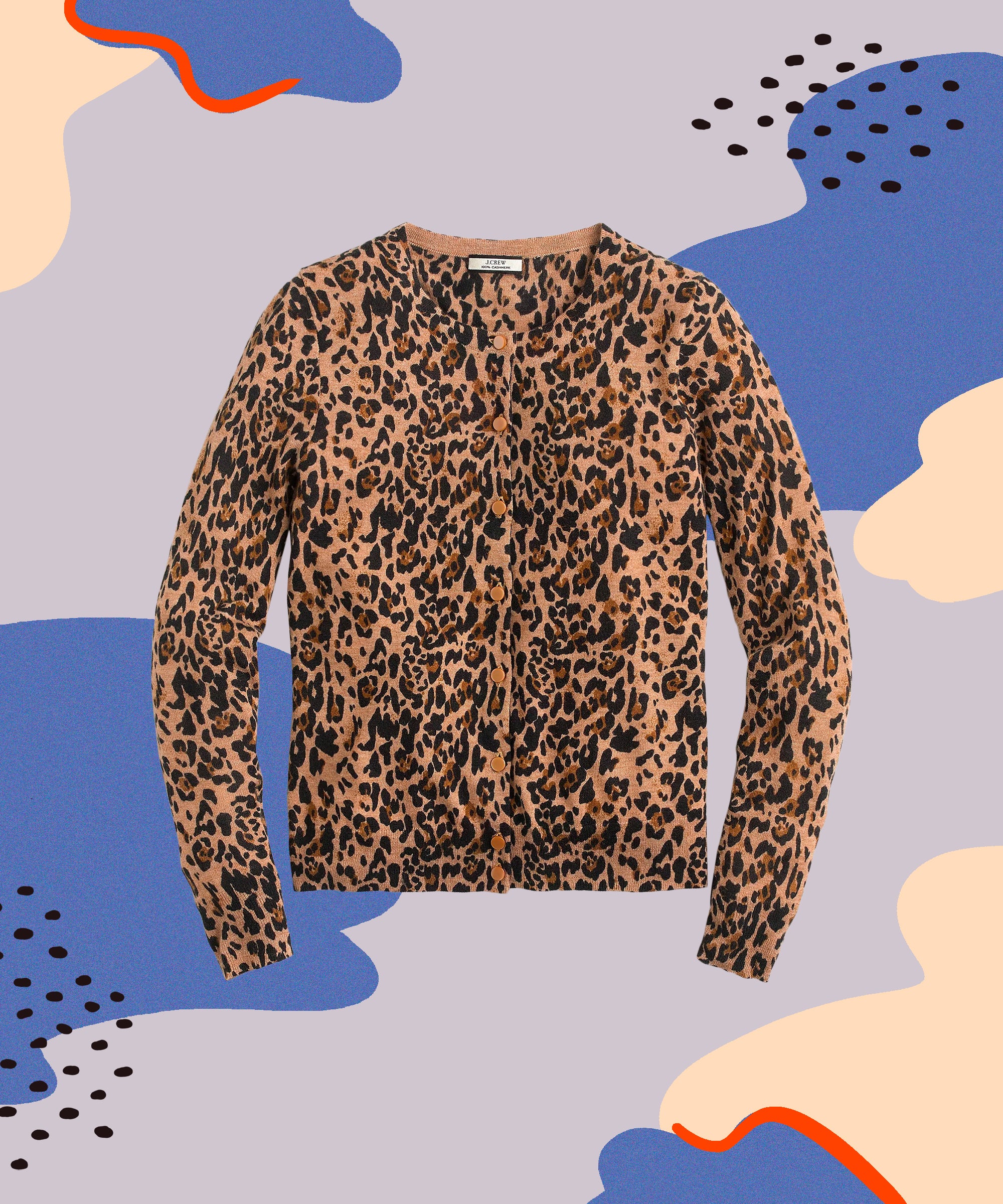
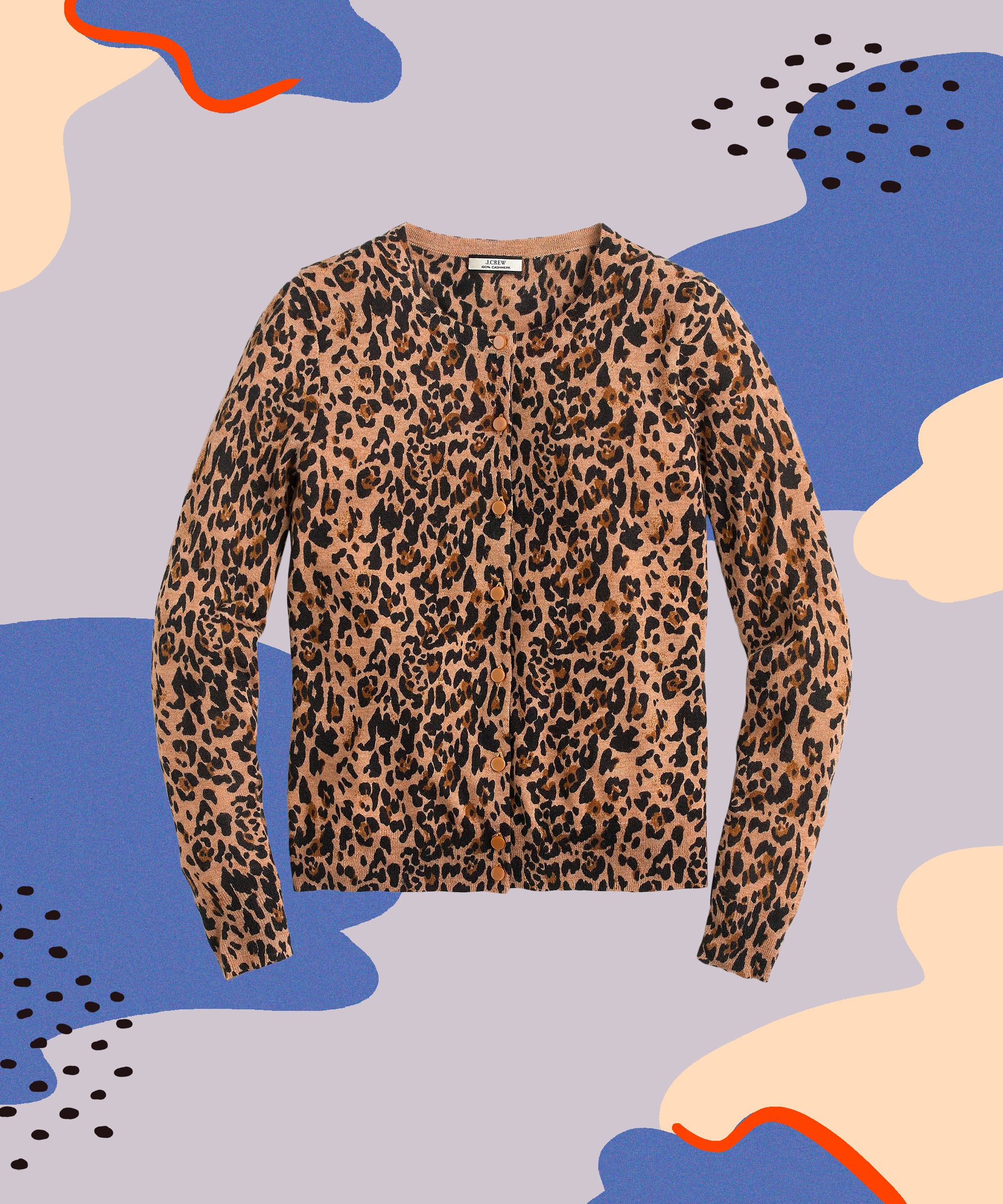
A few weekends ago, I walked into Beacon’s Closet, a New York chain of secondhand stores, to sell some of my old clothing after I’d completed my fifth round of cleaning out my closet since the pandemic took hold. While waiting for my clothing to be assessed, I browsed the store, my eye stopping on a Vivienne Westwood-esque dress with oversized shoulders and an asymmetrical skirt. As I tried to pull it off the rack, it intertwined with another hanger, and a leopard cardigan came tumbling out alongside the dress. In a cotton material, with a three-quarter-length-sleeve and eight little buttons running down the center, it looked just like the one I bought in 2011 for my first job out of college. A look at the label confirmed this; it read: “J.Crew.”
I won’t go into J.Crew’s financial troubles over the last half a decade (they’ve been well-covered), nor the many reasons why it’s failing (it’s been done, too; in short, though, millennials are to blame). But I will say that the 2000s and early 2010s were a different time for the American brand, a time when it seemed like everyone coveted its preppy silhouettes, mismatched-prints styling, jewel-adorned everything, and, in my case, ‘00s-defining professional (but fun!) workwear. In its reigning years, under the creative direction of Jenna Lyons, Michelle Obama wore the brand while serving as the First Lady, and new collections showed during New York Fashion Week in a manner (and with attendees) more fitting of a high-fashion designer brand than a mall regular.
It was around that time, while I was a print magazine assistant in New York, that J.Crew entered my wardrobe. As ubiquitous around high-up fashion editors as the scent of Frederic Malle’s Portrait of a Lady or the Céline Luggage Totes (the “é” very much still present under the then-creative direction of Phoebe Philo) were the designs of J.Crew, worn by the likes of entry-level fashion hopefuls like me, who could only dream to, one day, be able to afford to buy a small bottle of $200 perfume. As someone who moved to the United States when I was 18 — and was therefore more used to international mall brands like Zara, Mango, and Topshop, rather than Banana Republic or Gap — and went to a liberal arts school after — where Urban Outfitters, Birkenstocks, and secondhand stores were students’ go-tos — at the age of 22, J.Crew was still new(ish) to me. But suddenly, everywhere around me were put-together young women in chinos in every Atlantic-Pacific-approved color, geek-chic blazers (paired with floral-printed pants and striped shirts, no less!), and ‘50s-esque cardigans draped as often over the back of the office chairs as the actual bodies of those who occupied them. They looked great; I quickly bought my first J.Crew item, a leopard cardigan, hoping to fit in.
Thinking back, there is no way I picked the leopard cardigan up without seeing it on someone else — or, if I am being really truthful, a few people. Back then, it was common to joke with your co-worker about the leopard Steve Madden loafers that not one of the four people you knew who had them could break in — I left bloodstains on the heel of mine while sincerely trying to do just that. It was even more common to have the same J.Crew link bracelet or hot pink sweater that you would pair with a J.Crew-approved non-complementary color like orange. There’s a reason why, in 2013, the New York Times ran an article with the headline “Jenna Lyons, the Woman Who Dresses America.”
Following my encounter at Beacon’s closet, I Googled to see if the leopard cardigan I wore almost a decade ago was still being offered at J.Crew itself. First, a similar style popped up in cashmere; I then found the style in the cotton material I had, though in a different print. “We’ve been designing our customer-favorite Jackie cardigan since 2004, and it’s still going strong,” the description for the cardigan reads. “We suggest keeping one on the back of your desk chair or in your bag at all times.”
When J.Crew started to lose its appeal a few years ago, it was for the same reason it had gained it: Everyone was wearing the same thing. (It’s interesting that Lyons is likewise credited for both the brand’s rise and fall.) But, with the introduction of street style circa 2012 and influencer culture, everyone wanted to stand out rather than fit in. On a practical note, with the peak of e-commerce and access to every store at everyone’s fingertips, it became increasingly hard to justify buying a now-inferiorly made $40 striped T-shirt — $80 if it was adorned with rhinestones as many things came to be during Lyons’ later years. It was around this time that I donated my leopard cardigan, alongside orange chinos and a sequin sweater to Goodwill after not wearing any of them for a while. After a brief stint with the brand, I abandoned the aesthetic — workwear (but fun!) — that, as a digital writer and editor at workplaces with no dress codes, not only didn’t serve me, but also had never really felt like mine to begin with.
After seeing the leopard cardigan at Beacon’s, I sent a photo of the cardigan to some of my friends, asking if they remembered the ubiquity of The Leopard Sweater like I did. Some knew exactly the one I was talking about, even if they’d had it in another color(s) or in the crewneck version that was also popular. Others remembered the leopard pencil skirts, as well as the brightly colored coats with the oversized gold buttons, rhinestone-adorned block heels, and the green floral pants (worn by Lyons herself!). I was even reminded of the J.Crew collaborations with the likes of Altuzarra (I bought a white denim skirt from the collection during a sample sale, I still remember) and Pamela Love. Few of us have any of these things anymore.
There are many reasons we discarded them from our wardrobes over the years, from their omnipresence and the quality-price discrepancy to the lack of the type of jobs that now require (or even encourage) its employees to dress in pencil skirts and cardigans and us being, well, millennials who have no qualms about abandoning things that don’t evolve with the times. As establishments and institutions — the ones whose empty promises of $200 fragrances in our future — failed us, there has also become less of a need to dress like the type of people keen on upholding them. Still, ask any 30-something woman right now, and they will likely recall a J.Crew phase with, if not fondness, then at least a smirk or knee-jerk nostalgia. Maybe, like for me, it serves as a reminder of their first job, when professional connections and friendships were made over the same chambray shirt. And while it’s not that much different from, say, how we now proudly list off the different colors of our Telfar bags today, it’s also worlds away.
I left the store without the leopard cardigan. I didn’t even try it on.
At Refinery29, we’re here to help you navigate this overwhelming world of stuff. All of our market picks are independently selected and curated by the editorial team. If you buy something we link to on our site, Refinery29 may earn commission.
Like what you see? How about some more R29 goodness, right here?


